The familiar adage "it takes a village to raise a child" has taken on a new meaning in 2025. Today's parenting "village" bears little resemblance to the traditional support structures of generations past, with 85% of parents acknowledging this profound shift. Digital communities have replaced neighbourhood networks, paid services supplement family support, and information flows constantly from countless sources.
This transformation creates both opportunities and challenges. Modern parents have unprecedented access to information and resources, yet paradoxically, this abundance often undermines rather than enhances their confidence. Our research examines this "confidence paradox" at the heart of modern parenting - exploring how today's families are rebuilding their villages while navigating information overload and resisting the mountain pressure of parenting perfection.
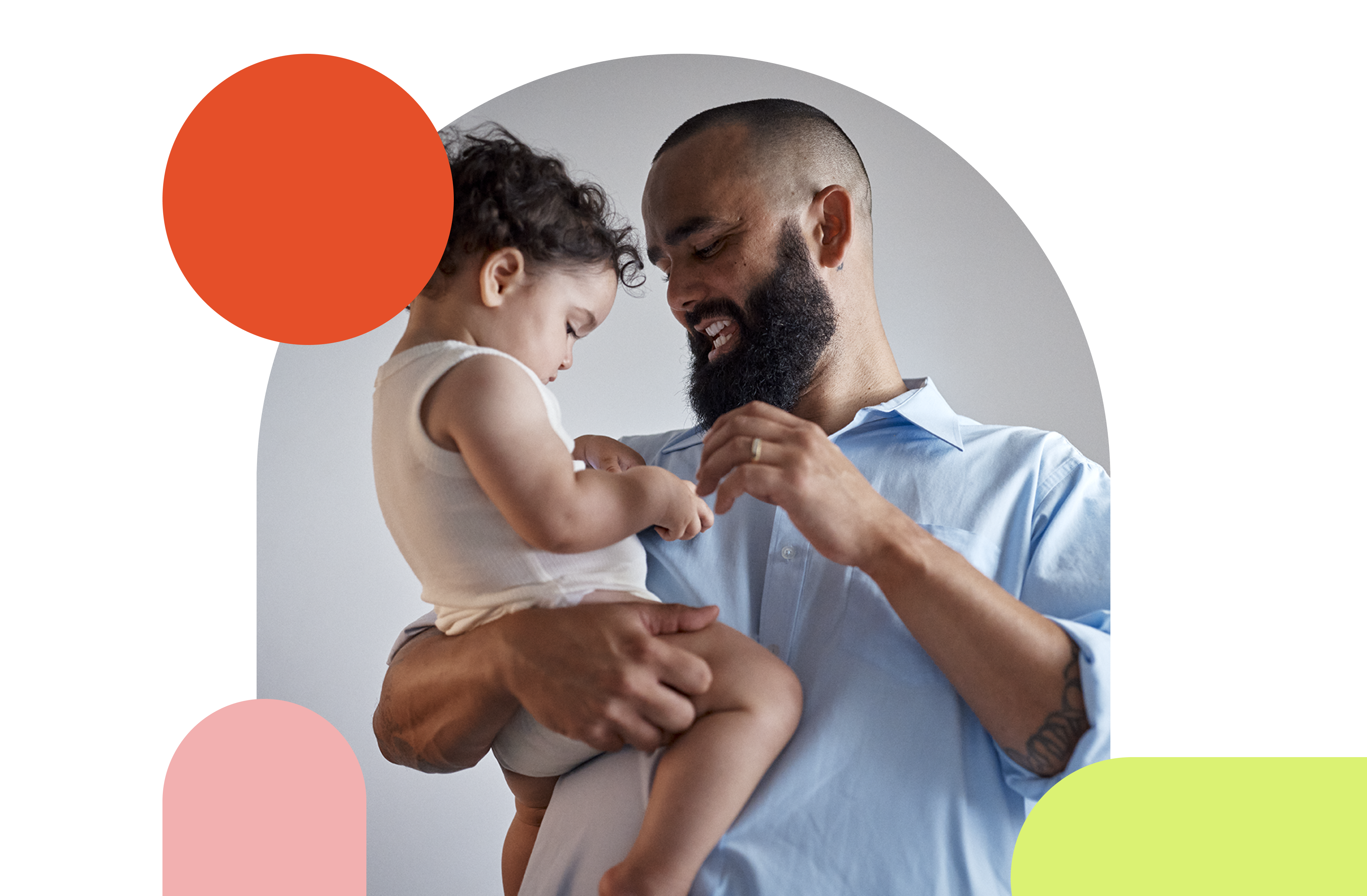
Raising Children in Australia
Through insights gathered from 1,000 expectant and current parents of children aged 0-5, this report offers a window into the evolving landscape of parental support and highlights how both traditional wisdom and modern innovations shape the journey of raising children in Australia today.
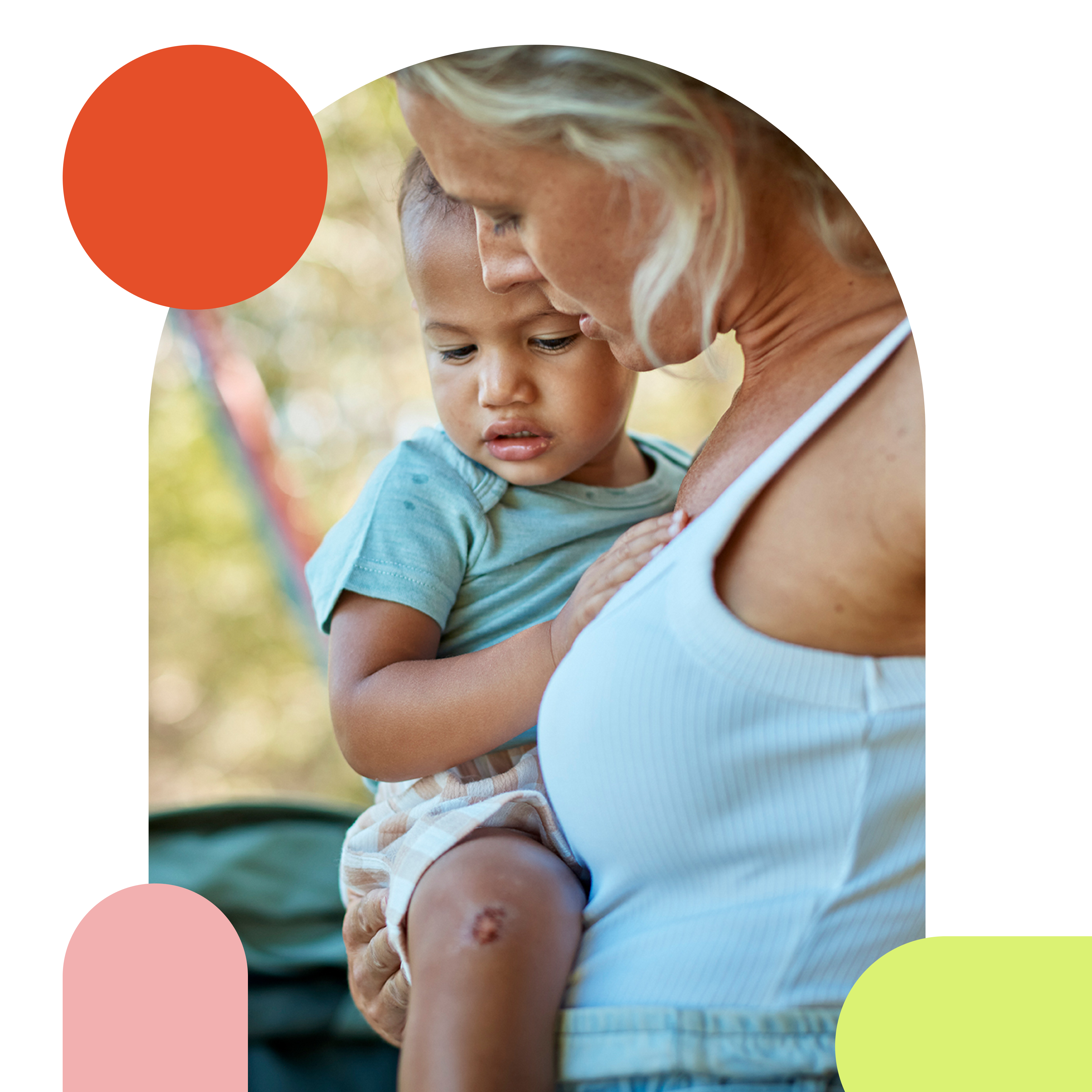
Key Themes
- The Evolution of the Modern Parenting Village: New support structures for today's families
- Unprecedented Pressures: Challenges unique to today's generation of parents
- Information Overload and Decision Paralysis: Navigation choices in an age of abundant advice
- Building Confidence: Strategies parents develop to overcome uncertainty
- Reimagining Support: How brands and organisations can better serve the modern parenting village
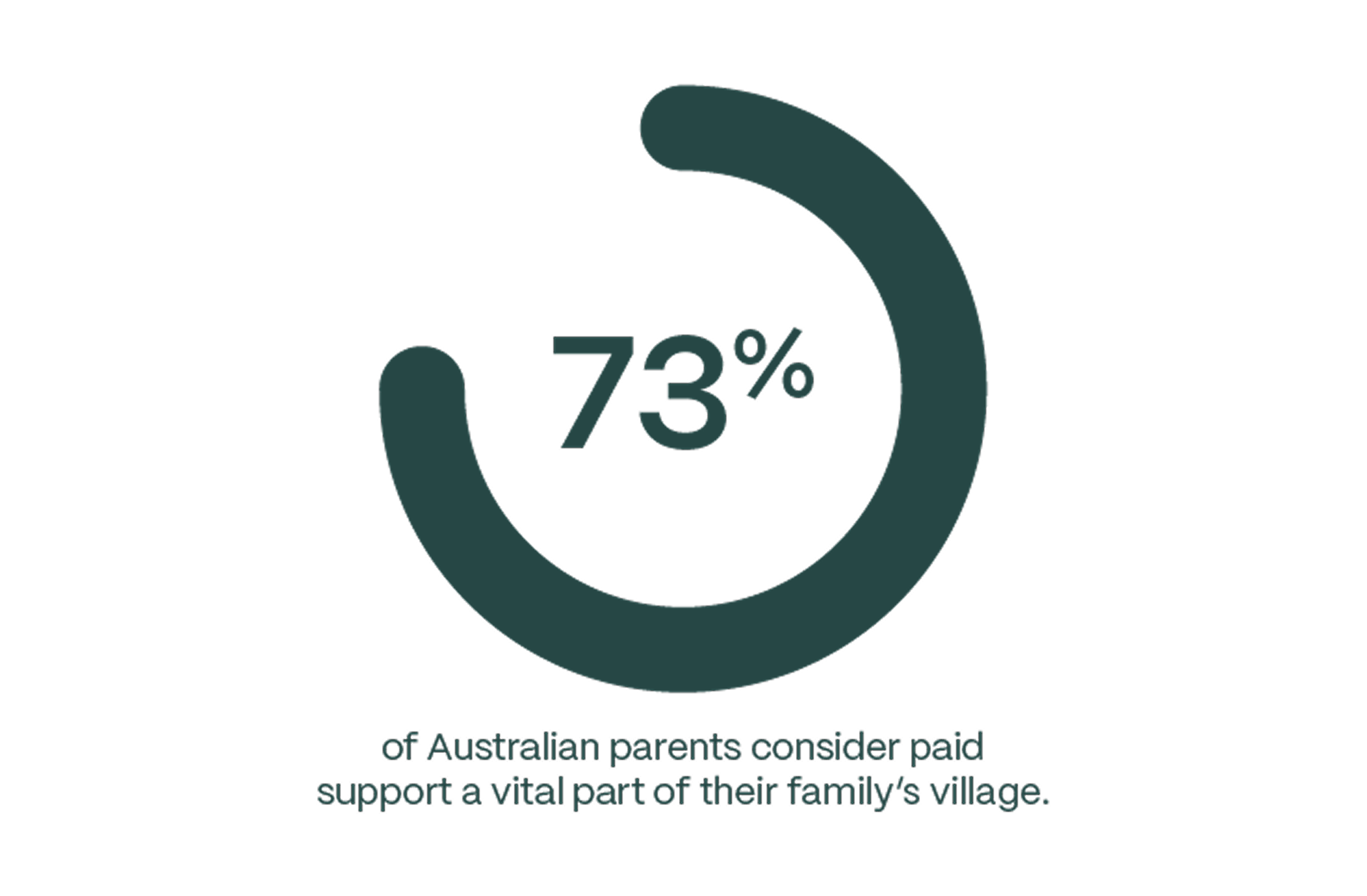
Paid Support
Today's village leans on paid support, while still embracing traditional wisdom.
The traditional village of extended family living nearby has given way to a more complex network of support for modern parents. While 85% of parents acknowledge this shift, they haven’t abandoned traditional wisdom completely. Instead, they’ve created hybrid support systems that blend paid services with generational knowledge. This modern village reflects the realities of geographic mobility, changing family structures, and evolving work patterns that characterise parenting in 2025.
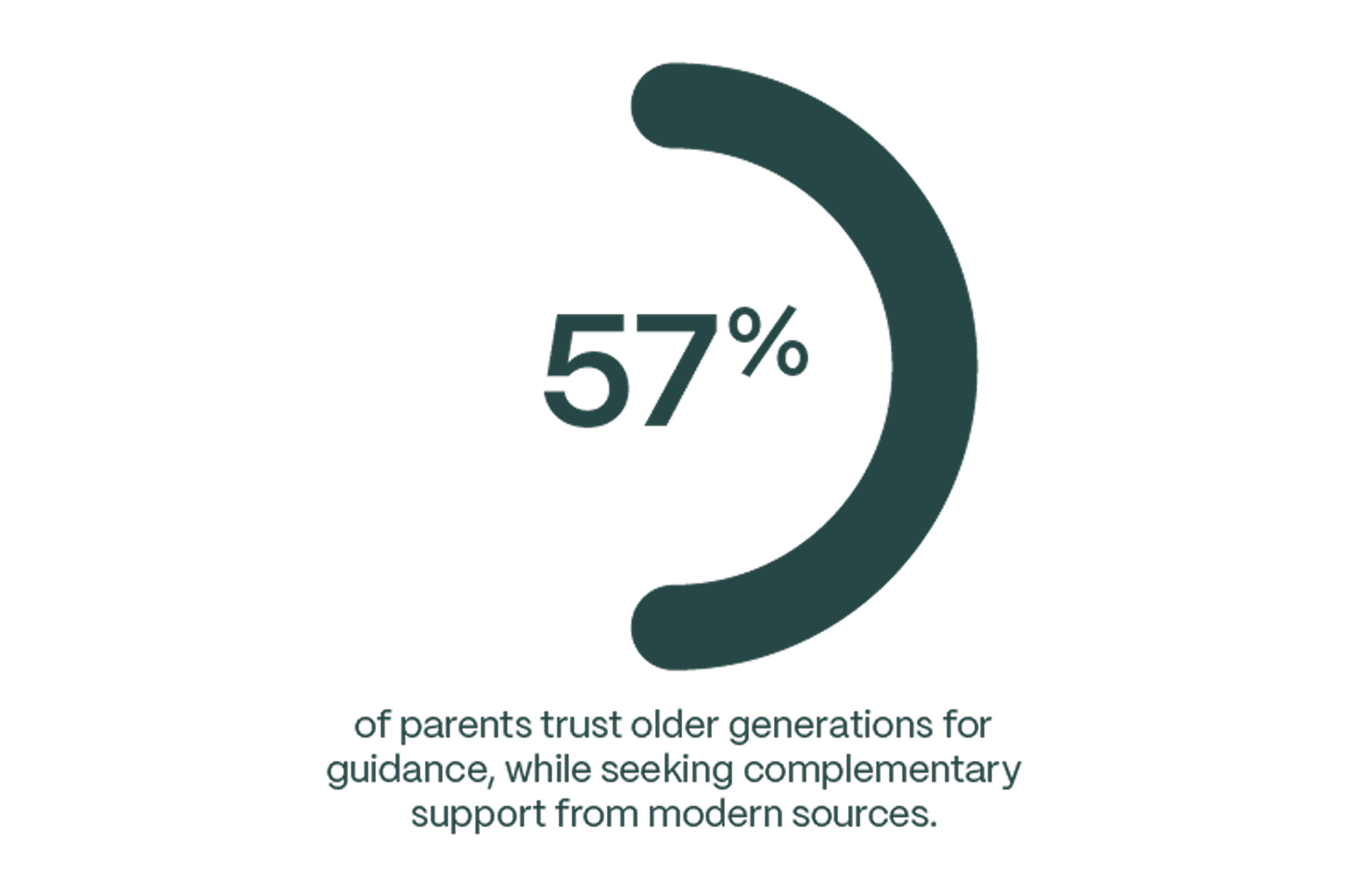
The Traditional Village
Today's village balances traditional wisdom with modern support networks.
The traditional village of extended family living nearby has given way to a more complex network of support for modern parents. While 85% of parents acknowledge this shift, they haven't abandoned traditional wisdom completely. Instead, they've created adaptive support systems that thoughtfully combine generational knowledge with contemporary resources. This evolution reflects both the changing family structures of 2025 and the practical realities faced by today's parents.
The evolving support network
What emerges from our research is not the replacement of traditional support, but its transformation. Parents are selectively incorporating generational wisdom while supplementing with professional services and digital communities that address their specific needs. This evolution suggests that while the village structure has changed, the fundamental need for community, guidance, and shared experience remains as important as ever.
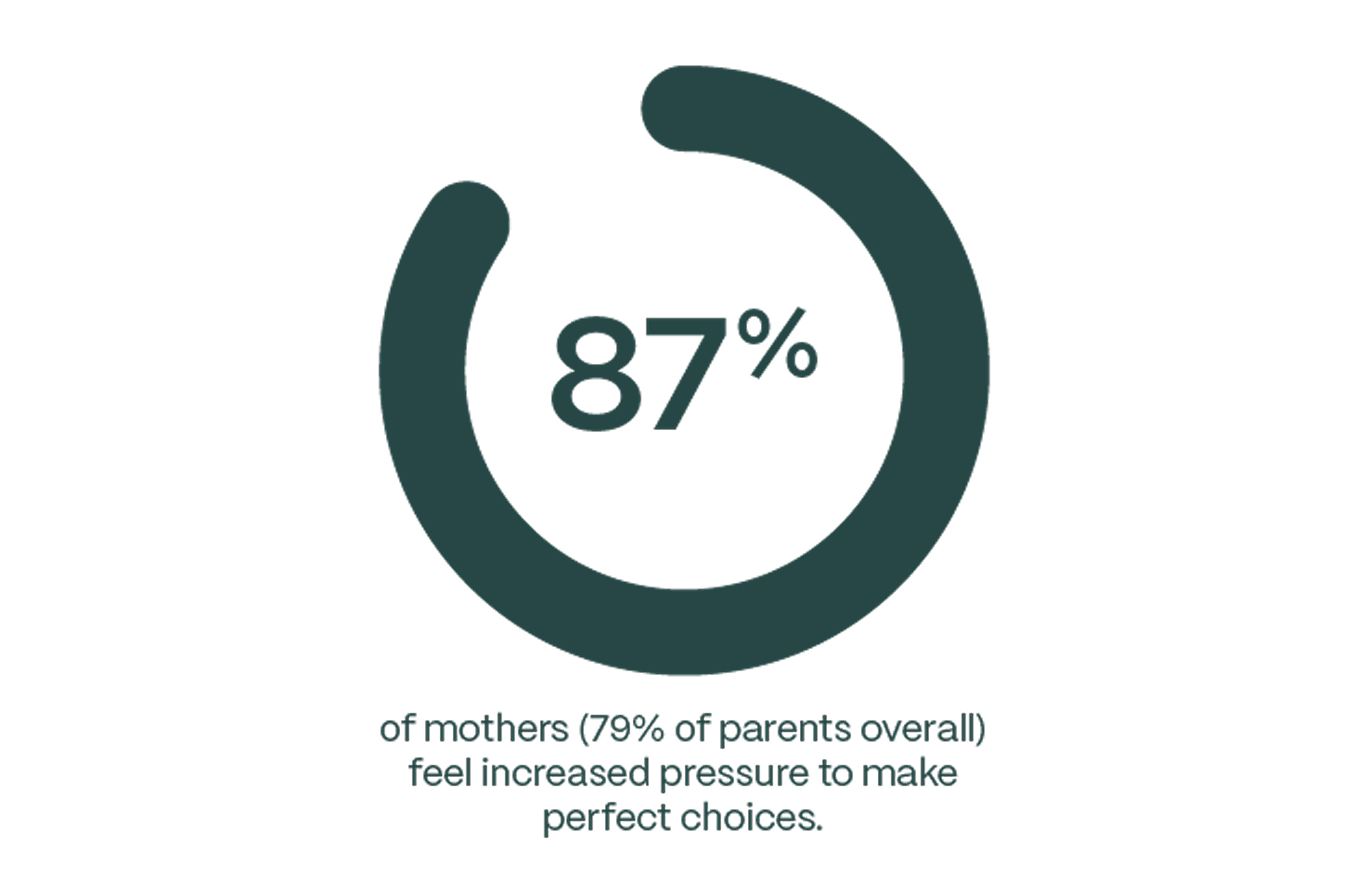
Perfection Pressure
Pressure for perfection weighs heavy for parents.
Modern parents are navigation unprecedented levels of performance pressure. The constant visibility of parenting choices through social media, combined with an abundance of expert advice, has created an environment where ordinary parenting moments become opportunities for perceived success or failure. This context helps explain why an overwhelming 79% of parents overall - rising to 87% of mothers - report feeling greater pressure to make "perfect" choices then previous generations did.
The reality behind the gloss
Perhaps most telling is that despite external pressures from social comparison and information overload, the issues that most undermine parental confidence remain fundamentally practical – sleep challenges and feeding difficulties. This suggests that beneath the modern layers of digital comparison and information saturation, the core challenges of parenting remain remarkably consistent across generations. The difference lies not in the challenges themselves, but in the heightened expectations surrounding how parents should handle them.
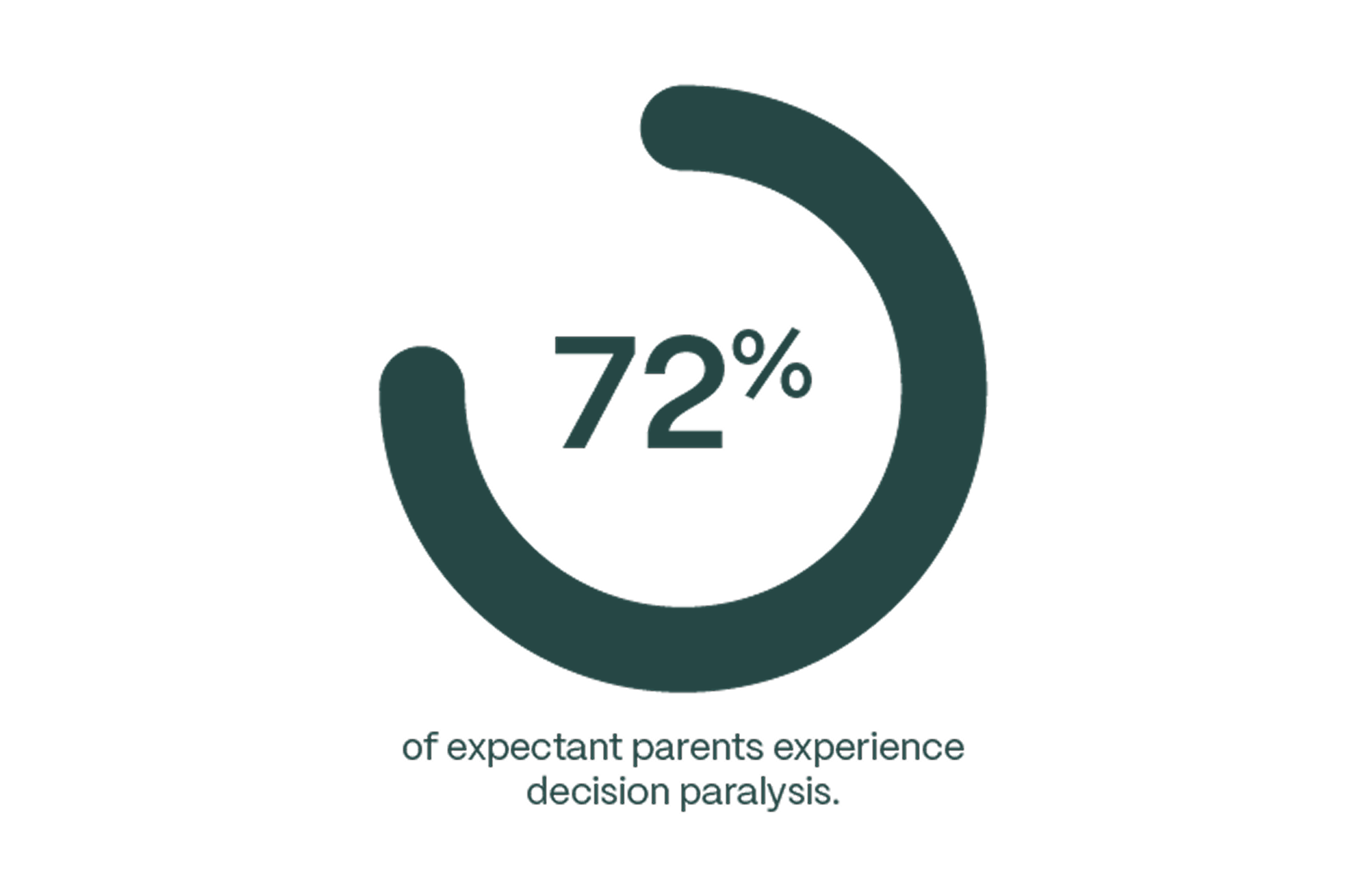
Decision Paralysis
An abundance of available information is fueling decision paralysis.
Today's parents face an unprecedented paradox: more information should lead to better decisions, yet the sheer volume of often conflicting advice creates paralysis rather than clarity. With 63% of parents reporting decision paralysis, the overwhelming nature of modern information access is transforming what should be empowering into something that undermines confidence. Interestingly, expectant parents feel the most acutely, with 72% experiencing decision paralysis before their baby arrives.

The Information Paradox
Parents consult an average of 4.1 sources before making key decisions, with males consulting significantly more sources (4.4) than females (3.7), revealing shifting dynamics in modern parenting roles.
While women tend to rely on concentrated, high-trust sources like mothers’ groups (43% consider these highly influential), men appear to cast a wider information net, suggesting different approaches to building parenting confidence.
This pattern highlights how the village supports different parents in unique ways, with 39% of parents consulting five or more sources before making significant parenting decisions.
Gen Z parents (born 1997-2012) are particularly affected by information-seeking behaviors, with 28% consulting seven or more sources, revealing generational differences in decision-making approaches.
The car seat remains the most intimidating purchase decision (37%), followed closely by feeding items (34%), areas where clear guidance and simplified choices can significantly reduce parental stress.
The good news emerging from our research is that this overwhelm tends to diminish somewhat after baby arrives, dropping from 72% in expectant parents to 63% in current parents. This suggests that practical experience gradually helps parents develop more confidence in their decision-making abilities. Additionally, many parents (nearly 20%) report feeling “out of the trenches” by the six-month mark, indicating that with time and experience, the confidence to navigate the information landscape improves. This insight offers hope to new parents currently feeling overwhelmed by choices.
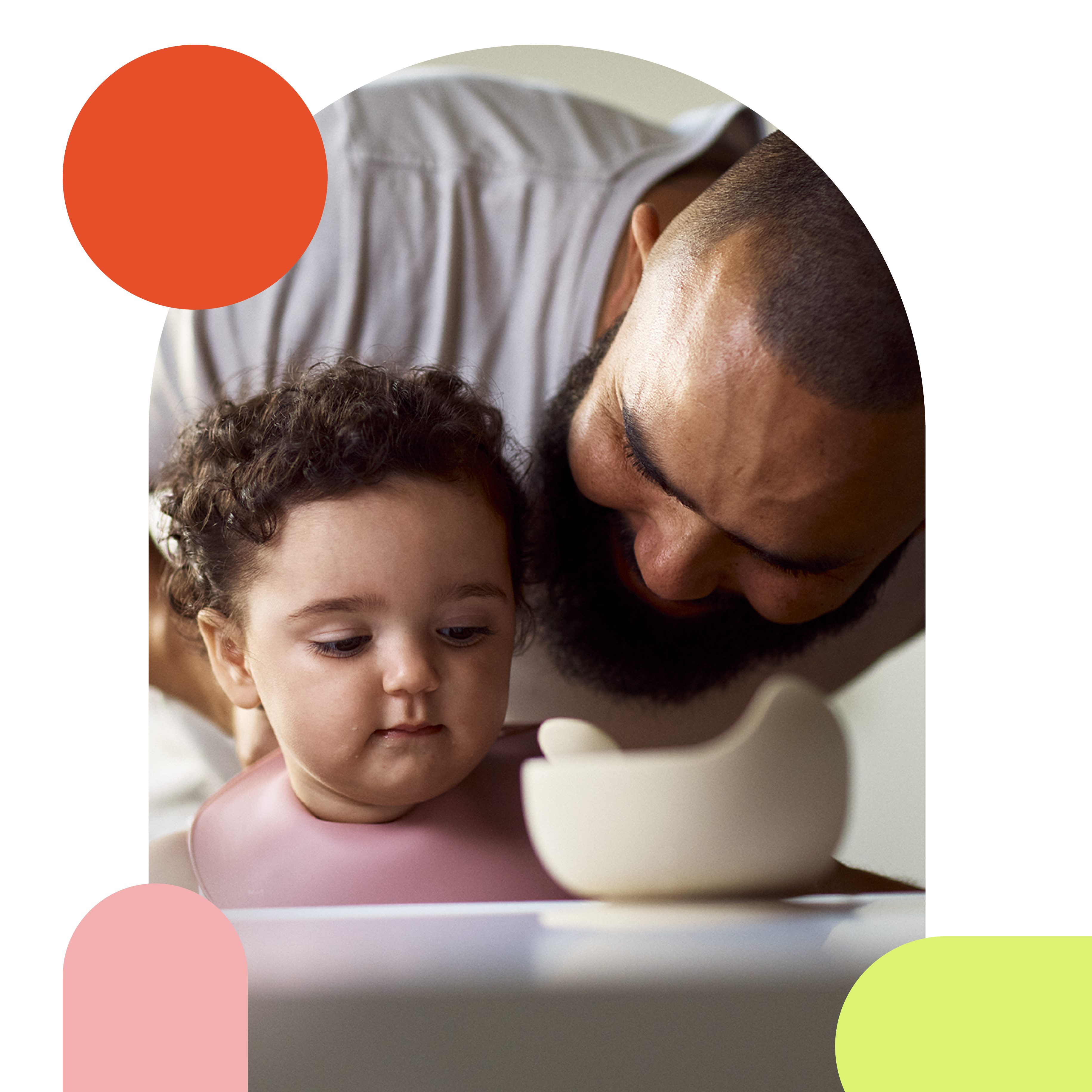
Key Takeaways and Conclusion
Our research paints a picture of modern parenting that is both challenging and evolving. Today’s parents are creating new types of villages, managing unprecedented information overload, and navigating heightened performance pressure - all while dealing with the timeless challenges of raising children.
These three key themes create a perfect storm that directly impacts parent confidence and decision-making ability. Yet within these challenges, we see parents demonstrating remarkable resilience and adaptability, finding ways to build confidence and community despite the shifting landscape.
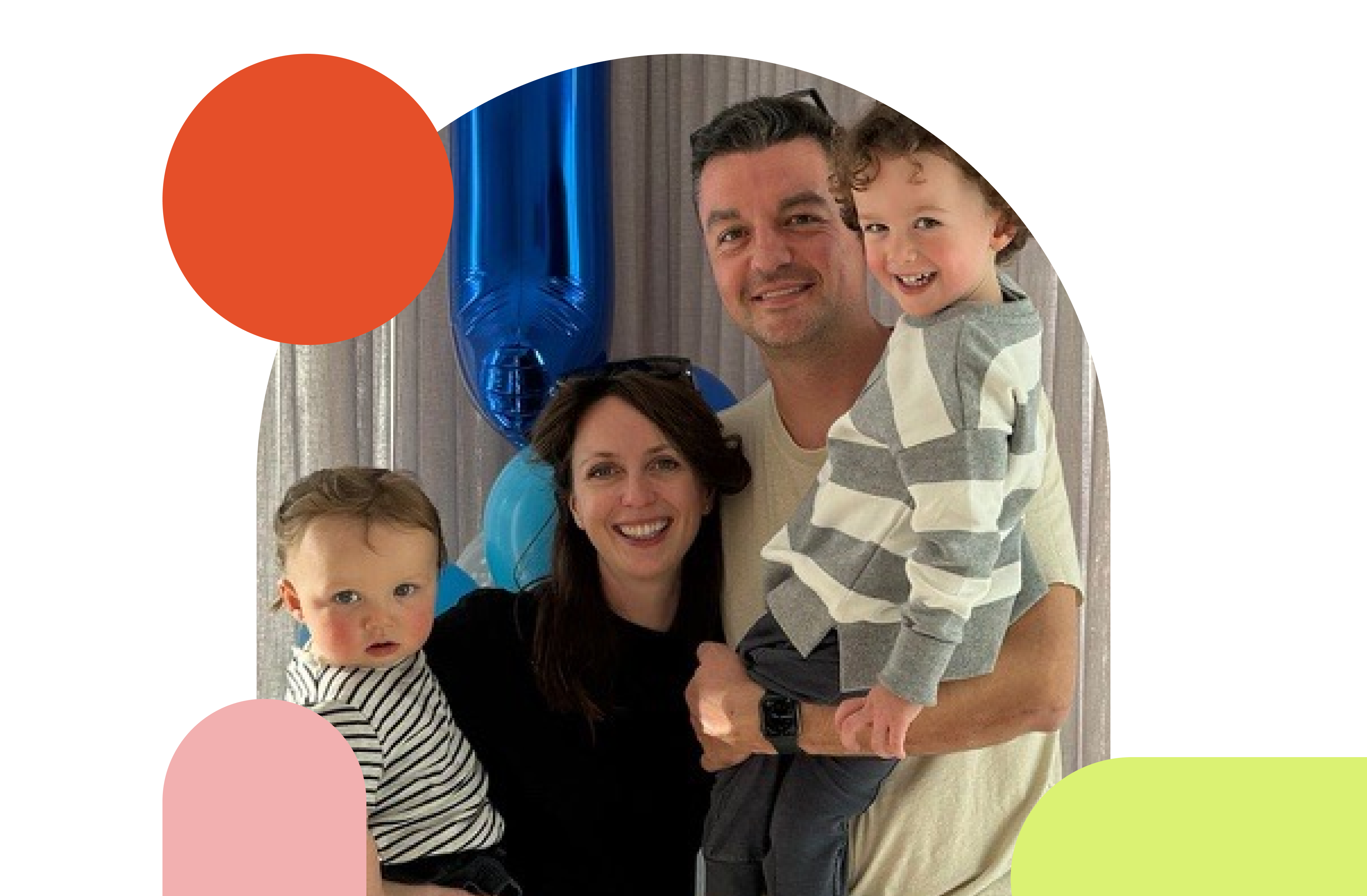
Foreward to the Future Village
"Parenting is a journey - exciting, unpredictable, and filled with big moments. As parents' needs evolve, so must the way we support them. Our customers told us we could do more to make their journey simpler and more reassuring - and we listened. With over 40 years of experience, we're reimagining how we empower new and expectant parents, offering trusted products, expert guidance, and a seamless shopping experience that makes every step feel a little easier. Because when parents feel confident, they can focus on what truly matters - giving their little one the best possible start."
- Ciara McGoohan | Chief Customer & Chief Data Analytics Officer
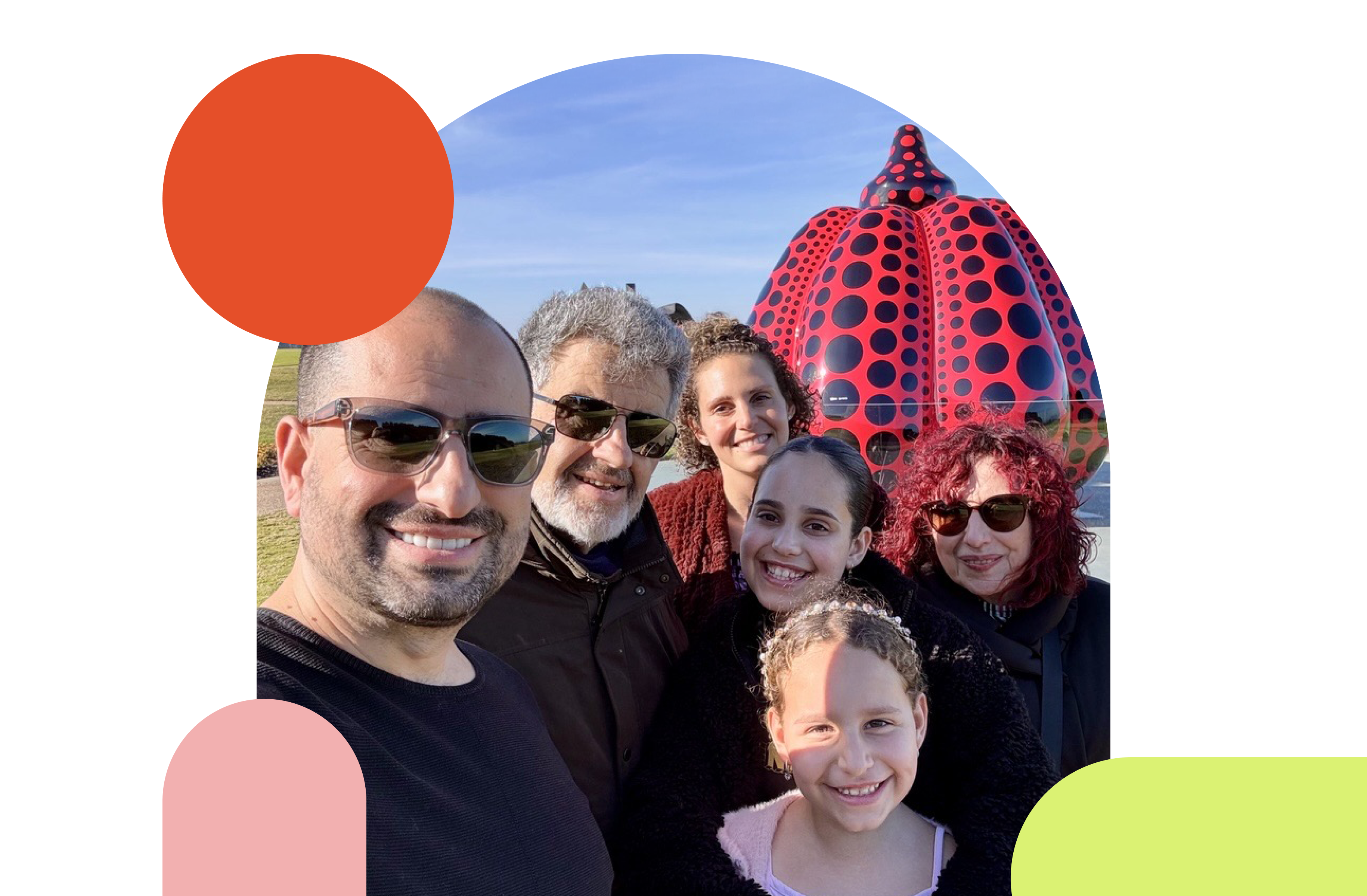
Message from our CEO
"At Baby Bunting, the insights from this research have deeply shaped how we think about supporting today’s parents. We know modern parenting can feel overwhelming—full of decisions, pressure, and conflicting advice. That’s why our new Store of the Future in Maribyrnong, opening on 19 April, represents so much more than a retail upgrade. It’s a reimagined experience designed to ease those pressures—through intuitive store design, curated product choices, and caring, knowledgeable team members who are there to help, not judge. From a whimsical glass bottle canopy that sparks a sense of wonder, to calming spaces that feel more like a friend’s kitchen than a store, we’re creating a place where parents feel supported, seen, and inspired—because every parent deserves the best start for the brightest future."
-Mark Teperson | Chief Executive Officer
Closing Thoughts
What emerges most clearly from the Future Village report is that while the structures of support have changed dramatically, the fundamental needs of parents remain the same: trusted guidance, practical support, and a sense of community. By understanding how today’s village has evolved, we can better support parents in building the confidence they need to navigate their unique journeys.
This research underscores our commitment to creating spaces and resources that simplify rather than complicate the parenting experience. At Baby Bunting, we’re dedicated to being a cornerstone in today’s modern village—providing the trusted guidance, curated products, and supportive community that parents need as they give their little ones the best start for the brightest future.
Research: *Antenna, an independent consumer research agency on behalf of Baby Bunting ,conducted an online AntennaPoll survey of n=1,019 Australian parents of children aged 0 - 5 and those expecting a child in the next 6 months.The survey was conducted between 19th & 27th of March 2025. The survey data collection was national, and respondents were sourced using an accredited online research access panel. Data was weighted for representation against the 2021 ABS Census.